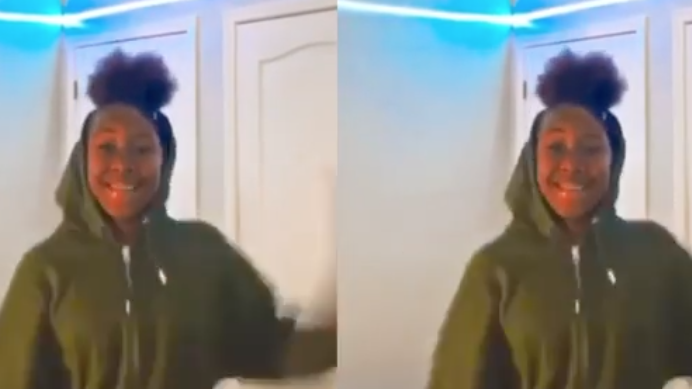Jalaiah Harmon is finally getting her just due.
The 14-year-old dancer and Atlanta, Georgia, native is the creative genius behind the Renegade, a massively popular dance taking over TikTok and Instagram.
Despite creating the popular dance, Harmon never received credit until there was a groundswell of outrage. Her situation spotlighted how many Black teens, particularly Black girls, are not receiving their props for being the brains behind dozens of viral sensations that are co-opted and profited from by white teens.
It all started on September 25, 2019, according to a recent New York Times profile of Harmon.
Harmon came home from school that night and decided to come up with a dance to K-Camp's hit song "Lottery" with a friend. Once they came up with all the intricate moves and filmed it, they posted the video to Funimate, a social media platform, and then to Instagram.
The video racked up 13,000 views but took off when another user posted a video of it on TikTok. From there, TikTok influencer Charli D’Amelio turned the video into one of the website's most popular dances by posting a video of herself recreating the moves.
Other major TikTok influencers jumped on the trend and started sharing videos of themselves doing it, but not a single one credited Harmon.
Harmon tried to create her own TikTok account and share the video while commenting on other videos asking for credit, but she was largely ridiculed for it.
“I think I could have gotten money for it, promos for it, I could have gotten famous off it, get noticed. I don’t think any of that stuff has happened for me because no one knows I made the dance,” Harmon told The New York Times.
The situation highlighted the racial divides between content on sites like Dubsmash, TikTok, Instagram and YouTube. For years, Black teens and creators have complained that white TikTok influencers routinely take dances and content from Black creators on Dubsmash and share it with their majority-white audiences on TikTok.
D’Amelio was implicated in another situation where she stole someone else's dance and told the New York Times that she was happy to learn of the person behind the dance.
“I know it’s so associated with me, but I’m so happy to give Jalaiah credit and I’d love to collaborate with her,” D’Amelio said.
Harmon said she wasn't angry at D’Amelio, adding that she would love to collaborate on a dance with the TikTok star at some point in the future.
The halfhearted apology did little to change the reality of the situation, and the social media response was harsh, with many criticizing how common it is for Black art to be stolen and sold.
This is why black creatives can’t get no where cause y’all don’t like taking 2 seconds to credit y’all sources
— HOOD VOGUE is tired of poverty (@itskeyon) February 13, 2020
i thought charli made that dance this whole time.. charli got big off of that dance and couldn’t even credit?????
— ???? (@bbybluwu) February 13, 2020
plus all the tiktokers that went viral got sooo many real life opportunities, brand deals, etc. because they got famous from this dance
— baeza (@MlSBEHAVINMARA) February 13, 2020
Charlie Damelio did this dance and got over 30 million followers in a month, is now living in a mansion in LA and has millions in brand deals and was even in a super bowl ad. The original creator received nothing.
— anu ???????????????? (@cinderhellaz) February 14, 2020
Even famous producer Polow da Don has noticed a discrepancy in how content created by Black teens is repurposed by white children.
“Dubsmash catches things at the roots when they’re culturally relevant. TikTok is the suburban kids that take things on when it’s already the style and bring it to their community,” he told The Times.
